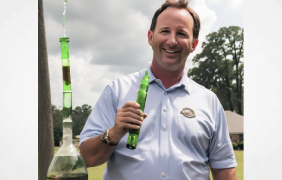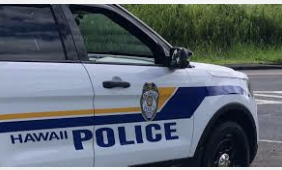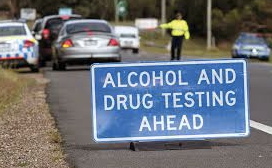The government’s pledge to implement up to 50,000 random roadside drug tests a year could see thousands of innocent drivers ticketed, cannabis advocates say.
The advocates say saliva testing devices are unreliable and the impact of the drug on driving ability was yet to be conclusively established.
Transport Minister Simeon Brown said cannabis altered a person’s sense of time and distance, increased their reaction time and affected co-ordination.
But a member of a research team conducting on track driving trials of medicinal cannabis users at Melbourne’s Swinburne University said it was not so simple.
The study will compare the on track driving performance of 72 patients who used medical cannabis products containing Tetrahydrocannabinol (THC) – the psychoactive component of cannabis – to determine whether they were safe to drive.
Dr Amie Hayley said the presence of varying levels of THC in a person’s blood or saliva was not enough to infer someone was unsafe at the wheel.
“Unlike alcohol, which has a quite linear relationship between the more that you consume the more impaired that you are, THC does not show that relationship. Which is what makes this idea of the presence of THC as a proxy for impairment such a difficult and scientifically unsound concept,” she said.
Hayley said the build up of THC in person’s system – as well as variables like their weight and gender – could influence detectable levels of the drug without necessarily effecting that person’s ability to drive.
National Organization for the Reform of Marijuana Laws spokesperson Chris Fowlie said Australian research into similar saliva testing devices as proposed for use in New Zealand showed they gave false positive results more than 20 percent of the time.
“You’re going to end up with false positives where you’re actually pinging people who aren’t impaired because you’re detecting outside the typical three to four hour window of potential impairment and you’re actually picking up metabolites or THC itself, which can hang around for up to several days in regular users including medical users,” Fowlie said.
Green MP Julie Anne Genter – who worked on the select committee during the previous government’s attempts to establish a national testing framework – said experts raised serious concerns about the limitations of the devices.
“It’s going to be very, very difficult to have a regime that accurately can detect that somebody is impaired or not and it will end up penalising people who are not impaired and who are legally using something that has stayed in their system and they’re using it for pain relief or to assist with sleep or anxiety and this could have really adverse consequences for ordinary people who are obeying the law and who are going about their lives and simply taking a prescription medication and driving afterwards,” Genter said.
But Brown said drivers would only be penalised if at least one of two positive saliva tests was backed up by a laboratory test.
He said legislation was already in place to allow legal medicinal users to contest an infringement provided they were using the drug in line with their medical advice.
“If the laboratory test is also positive, the driver will be able to contest any infringement notice issued for any prescription medication taken in accordance with a current prescription, and in accordance any instructions from a health practitioner or manufacturer. The police may also have the option of requiring a driver to undertake a compulsory impairment test. Drivers who fail these tests will be required to undertake an evidential blood test,” Brown said.
Automobile Association safety spokesperson Dylan Thomas said the presence of drugs in nearly a third of fatal crashes showed the need for an attitude shift in the country’s drivers.
“We don’t want people who are affected by any substances and not seeing things as clearly as they normally do or reacting to things as quickly as they normally would to then get behind the the wheel and and go out on the roads. We see a big part of this is actually about deterrence and changing attitudes. Getting people to think ‘I could be tested, I could be caught, so I’m not going to take the risk’.”
Thomas said any testing regime – however imperfect – was still a powerful tool to encourage drivers to make safer choices before they got behind the wheel.

















